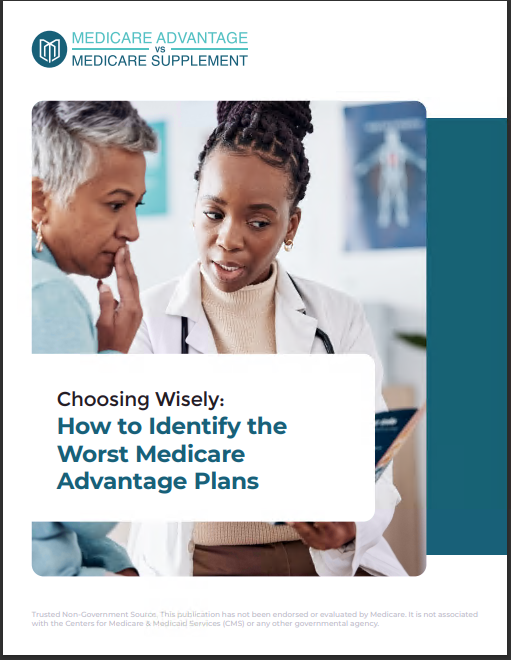Key Takeaways
-
Missing key Medicare enrollment deadlines can result in penalties or gaps in your coverage.
-
Understanding your options and carefully reviewing plan details helps you avoid costly mistakes.
The Importance of Getting Medicare Enrollment Right
Medicare is a vital part of your healthcare journey, offering comprehensive options to help you stay covered as you age. However, navigating enrollment can feel overwhelming, with specific timelines, rules, and choices to consider. A single mistake can leave you facing penalties or gaps in your healthcare coverage, so it’s crucial to approach the process with care. Let’s break it down step by step to ensure you stay on track and avoid common pitfalls.
Start with Your Initial Enrollment Period (IEP)
The Initial Enrollment Period (IEP) is your first opportunity to sign up for Medicare. It lasts seven months—three months before the month you turn 65, the month of your birthday, and three months after. Missing this window can result in late enrollment penalties for Medicare Part B and Part D, which could increase your premiums permanently.
Tips for Navigating Your IEP:
-
Mark Your Calendar: Add reminders for your IEP timeline to avoid missing critical dates.
-
Understand What You Need: Research Medicare Part A (hospital insurance), Part B (medical insurance), and Part D (prescription drug coverage).
-
Check Employer Coverage: If you’re still working and have health insurance through your job, confirm whether you can delay Medicare enrollment without penalties.
Don’t Forget About the General Enrollment Period (GEP)
If you miss your IEP, you can sign up during the General Enrollment Period (GEP), which runs from January 1 to March 31 each year. However, this comes with potential gaps in coverage and penalties for late enrollment. Coverage doesn’t begin until July 1, so you could face months without healthcare.
Why the GEP is a Last Resort:
-
Penalties Add Up: For every 12 months you go without Medicare Part B, your premium increases by 10%.
-
Limited Coverage Timing: Delays in coverage could leave you vulnerable to unexpected healthcare costs.
Special Enrollment Periods (SEP): Your Lifeline for Life Changes
Special Enrollment Periods (SEP) allow you to sign up for Medicare outside regular enrollment periods if you experience specific life events. Examples include losing employer-sponsored coverage or moving to a new area. SEPs vary in duration, but most require you to act within 63 days of your qualifying event.
Common Qualifying Events for SEPs:
-
Losing health insurance from your job.
-
Moving out of your current plan’s service area.
-
Gaining or losing Medicaid eligibility.
Make sure to act quickly to avoid coverage gaps and penalties.
Coordinating Medicare with Employer Coverage
If you’re still working past age 65 or have health coverage through a spouse’s job, you might be able to delay Medicare enrollment. However, this decision isn’t as straightforward as it seems. Failing to understand how Medicare interacts with employer plans could leave you without coverage.
Key Points to Remember:
-
Verify Plan Credibility: Employer plans must meet Medicare’s “creditable coverage” standard to avoid penalties.
-
Understand Coordination of Benefits: Medicare often becomes the primary payer, meaning it pays first, and your employer plan may only cover the remaining costs.
-
Request Documentation: Obtain written proof from your employer confirming your coverage is creditable.
Understanding Medicare Part D: Prescription Drug Coverage
Prescription drug coverage is a critical component of your Medicare plan, but it’s also an area where people make costly mistakes. Medicare Part D helps cover your medication costs, but enrolling late or skipping this coverage altogether can result in penalties and limited options.
How to Avoid Part D Pitfalls:
-
Act During Your IEP: Enroll in Part D as soon as you’re eligible unless you have creditable prescription drug coverage.
-
Review Formularies: Each Part D plan has a list of covered drugs, known as a formulary. Ensure your medications are included.
-
Compare Costs: Look at premiums, copayments, and deductibles to find a plan that fits your budget and needs.
Watch Out for the Medicare Advantage vs. Original Medicare Decision
Medicare Advantage (Part C) and Original Medicare offer different coverage options, and the choice can significantly impact your healthcare experience. Original Medicare includes Parts A and B, with optional Part D for prescription drugs, while Medicare Advantage plans often bundle these components with additional benefits.
Common Mistakes When Choosing Plans:
-
Not Comparing Options: Failing to research plan differences could result in higher costs or limited provider networks.
-
Ignoring Coverage Needs: Consider your current and future healthcare needs, including specialists, prescription drugs, and out-of-pocket costs.
-
Skipping the Fine Print: Medicare Advantage plans may have restrictions like prior authorizations, which could limit your access to care.
Open Enrollment Period (OEP): Make Changes Annually
Medicare’s Open Enrollment Period (OEP) runs from October 15 to December 7 each year. This is your chance to review and change your coverage if needed. Many people make the mistake of sticking with the same plan year after year, even when their needs or plan offerings have changed.
What to Do During OEP:
-
Review the Annual Notice of Change (ANOC): This document outlines changes to your plan’s costs and benefits for the coming year.
-
Shop Around: Compare different plans to ensure you’re getting the best value.
-
Check Provider Networks: Verify that your doctors and preferred healthcare providers remain in-network.
Avoid Overlooking Supplemental Coverage
Original Medicare doesn’t cover everything, leaving you responsible for deductibles, copayments, and coinsurance. Medicare Supplement Insurance (Medigap) can help fill these gaps, but missing the Medigap Open Enrollment Period could limit your options.
Why Timing Matters:
-
Medigap Open Enrollment Period: This six-month period begins when you first enroll in Part B. During this time, you have guaranteed issue rights, meaning insurers can’t deny you coverage based on health conditions.
-
Waiting Can Be Costly: After this period, you might face higher premiums or be denied coverage entirely.
Avoiding Common Enrollment Mistakes
Here’s a quick rundown of errors to avoid:
-
Procrastinating: Missing deadlines can result in penalties and gaps in coverage.
-
Misunderstanding Coverage: Know what each part of Medicare covers and whether you need additional plans like Medigap or Part D.
-
Assuming Medicare Covers Everything: Medicare doesn’t include services like dental, vision, or hearing unless you have a supplemental plan.
-
Relying on Assumptions: Don’t assume your employer coverage qualifies as creditable or that Medicare Advantage works the same as Original Medicare.
Staying Organized: Tools and Resources
Being organized can save you from costly mistakes. Use online tools, checklists, and reminders to track enrollment periods and plan details.
Helpful Tips:
-
Set Alerts: Create calendar reminders for key dates like IEP, OEP, and SEP deadlines.
-
Keep Records: Maintain a file with important documents, including plan details, receipts, and correspondence with Medicare or insurers.
-
Seek Help: Medicare counselors, available through programs like SHIP (State Health Insurance Assistance Program), can provide free assistance.
Why Being Proactive Saves You Money and Stress
Taking a proactive approach to Medicare enrollment can save you from unnecessary stress and expenses. Start early, review your options thoroughly, and don’t hesitate to ask for help if you’re unsure about your choices. By avoiding common mistakes, you’ll set yourself up for a seamless transition into Medicare and secure the coverage you need.
Avoid Enrollment Headaches and Stay Covered
Enrolling in Medicare doesn’t have to be a source of frustration. By understanding key timelines, avoiding common mistakes, and staying organized, you can ensure you get the coverage you need without unnecessary penalties or gaps. Remember, staying informed is your best defense against enrollment pitfalls.










